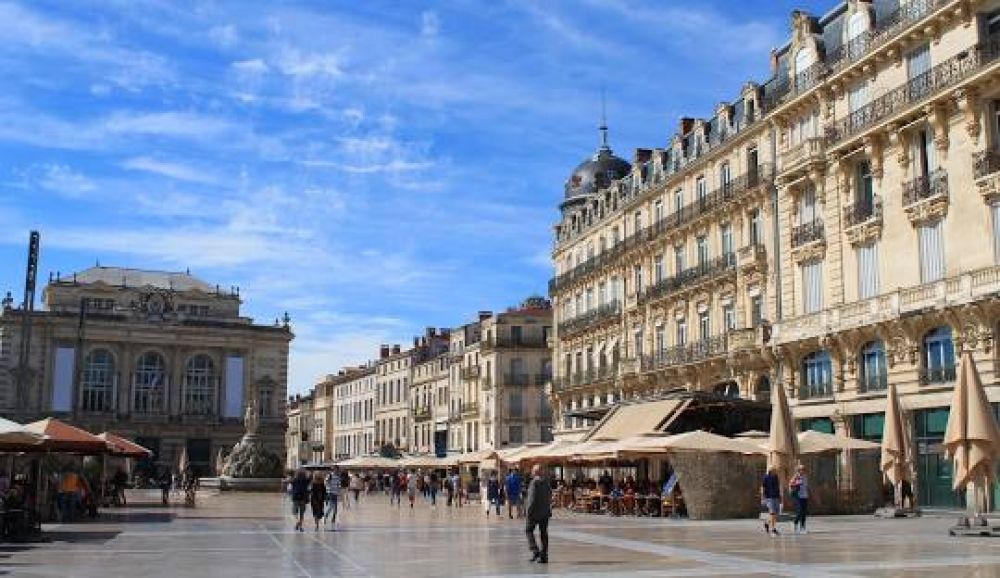

Montpellier, a vibrant city in the South of France, has been a center for culture and learning for centuries. At its heart lies the Place de la Comedie, a public square that has become a symbol of the city's social and cultural life. The history of tourism in Montpellier, and particularly around Place de la Comedie, reflects the growth of the city as a destination for scholars, artists, and travelers.
The origins of Place de la Comedie date back to the 18th century, when it was developed as a center of trade and public life. The square is named after the Opera Comedie, a historic theater that still dominates the eastern side of the square and has been a hub for the performing arts since its establishment.
As the city expanded in the 19th and 20th centuries, Place de la Comedie became the focal point of Montpellier, drawing locals and tourists alike to its charming cafes, terraces, and the scenic Fontaine des Trois Graces at its center. This fountain, featuring the three Greek goddesses Aglaea, Euphrosyne, and Thalia, provides an iconic backdrop for visitors' photographs and memories.
Tourism in Montpellier has flourished over the years due to its rich history, Mediterranean climate, and reputation as a hotspot for education and the arts. The University of Montpellier, one of the oldest in the world, has been instrumental in attracting intellectuals and students who, in turn, contribute to the city's cultural ambiance and tourism appeal.
The pedestrian-friendly design of the city, with Place de la Comedie at its center, makes it an ideal destination for cultural tourism. Visitors are drawn to the blend of historic architecture, such as the Medieval Mikvé and the Arc de Triomphe, with modern attractions and shopping destinations. Place de la Comedie serves as a starting point for exploring this mix of old and new.
In recent years, the tourism industry in Montpellier has seen a shift towards experiential and sustainable travel. Visitors are increasingly looking for authentic experiences that allow them to connect with local culture and history. As a result, guided walking tours of the city and its historical sites, including Place de la Comedie, have grown in popularity.
Moreover, Montpellier's commitment to sustainability and eco-friendly practices has attracted environmentally conscious travelers. The city's robust public transportation system and dedication to green spaces align with contemporary tourism trends.
Food tourism is also a significant part of the city's appeal, with Place de la Comedie providing access to Montpellier's diverse culinary scene. Whether it's tasting regional wines, savoring traditional French cuisine, or exploring the local farmer's markets, the gastronomic experiences enhance the city's desirability as a travel destination.
Overall, the Place de la Comedie remains a timeless attraction in Montpellier, offering a window into the city's past and present. Its ongoing role in the area's tourism scene highlights the square's enduring charm and the city's continuously evolving allure for domestic and international visitors.